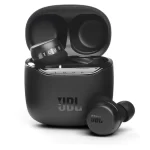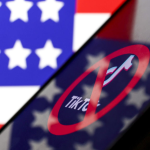The Duke of Sussex has taken aim at Prince Charles in recent months, including during he and wife Meghan Markle’s interview with Oprah Winfrey, in which he effectively accused his father of bullying him and Prince William.While Prince Harry didn’t blame Prince Charles for his parenting failings, he suggested his father was raised in a similarly tough way in a comment that appeared to attack the Queen and Prince Philip’s parenting.“Charles is such a gentle man and a dedicated father first and foremost. He’ll be feeling wretched. He wants to seek a reconciliation. He is not vindictive at all…” an insider told the Mail on Sunday.“Charles will want to engage, but it’s fair to say what Harry has said in both interviews with Oprah has been seen as very callous within the family. If Harry was to attack the Queen in a more personal way, Charles would close ranks with the Queen without a doubt and Harry would be out in the cold.”The source also said Harry’s relentless rants have been “very upsetting for the Royal Family”.“Harry’s grandmother has taken this very personally and is deeply upset by what Harry has said, in particular his comments about Charles’s parenting and suggesting [he] knows no better because of how he was brought up”.CHARLES, CAMILLA HAIL COVID CANINE ‘HOPE’Prince Charles and Camilla, Duchess of Cornwall, have lauded Covid detection dogs after a new study revealed specially trained canines can detect coronavirus in under a second.According to research published on Monday, dogs — with their remarkable sense of smell — can be trained to detect more than 90 per cent of Covid-19 infections even when patients are asymptomatic.Authors of the research, which is yet to be peer-reviewed, said they hoped it could eventually replace the need to quarantine travellers.“The Covid-19 trial results mean dogs can now train to work in public settings to rapidly mass screen, giving us hope for safer travel and access to public places,” the couple posted on Clarence House’s Instagram. The Duchess of Cornwall is Patron of Medical Detection Dogs, a charity working to train dogs to detect the odour of human disease.The sniffer dogs were trained using smelly socks worn by people infected with coronavirus. The success of the trials mean they could soon be used at airports or mass gathering venues to pick up the “corona odour” of Covid-19-infected people.Working in teams of two, the Covid-trained dogs could screen a line of several hundred people coming off a plane within half an hour, for example, and detect with up to 94.3 per cent sensitivity those infected, the scientists said.Presenting results of an early stage study – which involved some 3500 odour samples donated in the form of unwashed socks or T-shirts worn by members of the public and health workers – the researchers said the dogs were even able to sniff out asymptomatic or mild COVID-19 cases, as well as cases caused by a mutant variant that emerged in the UK late last year.“Dogs could be a great way to screen a large number of people quickly and prevent COVID-19 from being reintroduced into the UK,” Steve Lindsay, a professor at Durham University’s department of biosciences who worked on the study, told reporters.James Logan, a disease control specialist at the London School of Hygiene & Tropical Medicine who led the project, said the major advantage of sniffer dogs over other screening methods such as lateral flow testing is their “incredible speed and good accuracy among large groups of people”.The British research, published online on Monday before being peer-reviewed, adds to other pilot projects in Finland, Germany, Chile and elsewhere which are trialling Covid-trained sniffer dogs at airports.The dogs in the UK study were trained over several weeks by being introduced to 200 odour samples from people who had tested positive for Covid-19, as well as 200 control samples from people who tested negative.The highest performing dogs in the trial detected coronavirus odour in the samples with up to 94.3 per cent sensitivity, meaning a low risk of false negative results, and up to 92 per cent specificity, meaning a low risk of false positive results.This accuracy is higher than recommended by the World Health Organisation for Covid-19 diagnostics, Logan’s team said, with the dogs outperforming lateral flow tests, which have an overall sensitivity of between 58 per cent and 77 per cent.Independent experts cautioned that the findings would need to be replicated in real-world situations.“This proof of concept study suggests that trained detection dogs could be used in places like airports, sports stadiums and concert venues,” said Lawrence Young, a virologist and professor of molecular oncology at Warwick University.“The big question is will this approach work in the real world on people rather than samples of socks and shirts?”
Powered by WPeMatico





